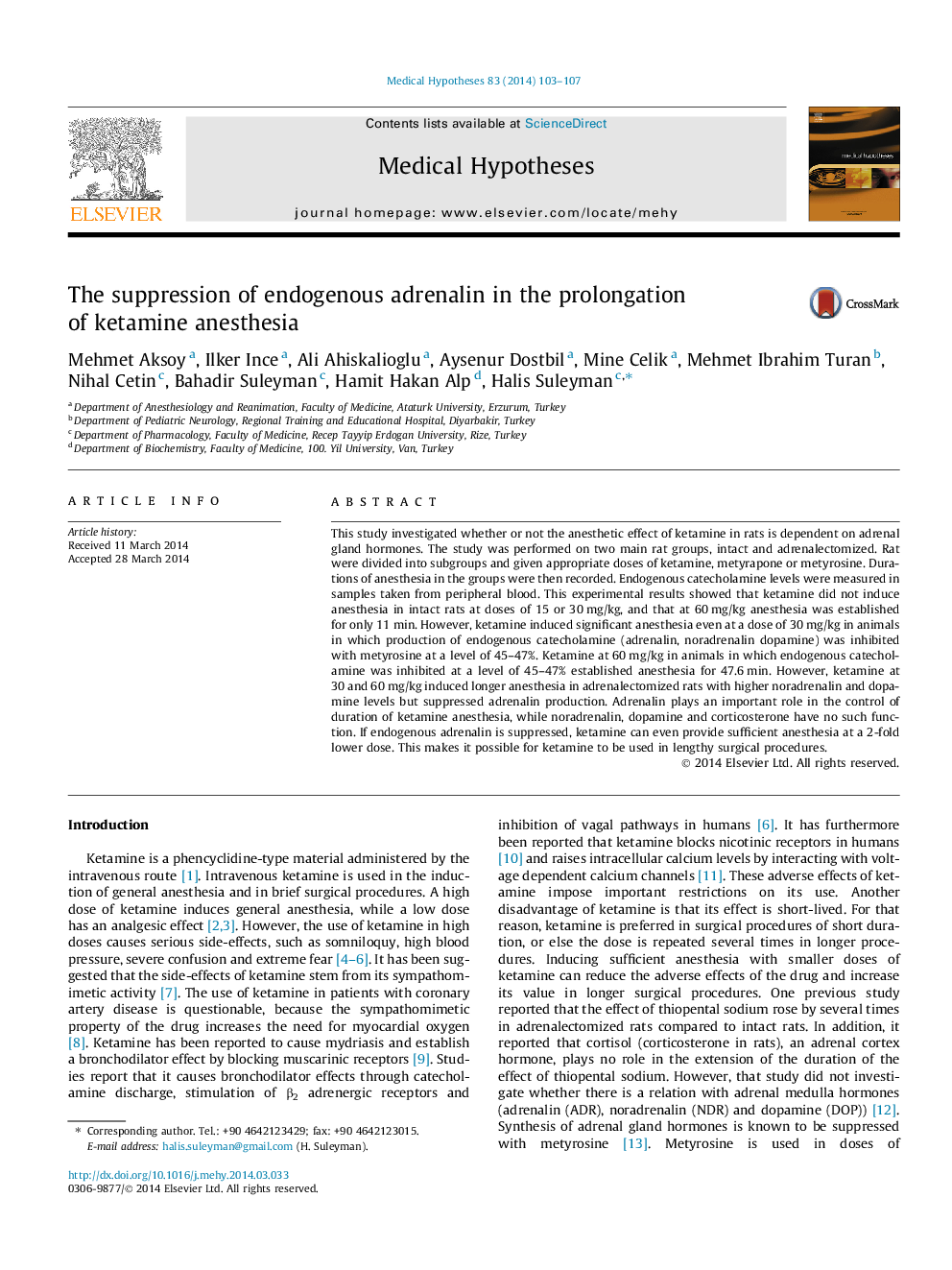| کد مقاله | کد نشریه | سال انتشار | مقاله انگلیسی | نسخه تمام متن |
|---|---|---|---|---|
| 2489067 | 1115012 | 2014 | 5 صفحه PDF | دانلود رایگان |
This study investigated whether or not the anesthetic effect of ketamine in rats is dependent on adrenal gland hormones. The study was performed on two main rat groups, intact and adrenalectomized. Rat were divided into subgroups and given appropriate doses of ketamine, metyrapone or metyrosine. Durations of anesthesia in the groups were then recorded. Endogenous catecholamine levels were measured in samples taken from peripheral blood. This experimental results showed that ketamine did not induce anesthesia in intact rats at doses of 15 or 30 mg/kg, and that at 60 mg/kg anesthesia was established for only 11 min. However, ketamine induced significant anesthesia even at a dose of 30 mg/kg in animals in which production of endogenous catecholamine (adrenalin, noradrenalin dopamine) was inhibited with metyrosine at a level of 45–47%. Ketamine at 60 mg/kg in animals in which endogenous catecholamine was inhibited at a level of 45–47% established anesthesia for 47.6 min. However, ketamine at 30 and 60 mg/kg induced longer anesthesia in adrenalectomized rats with higher noradrenalin and dopamine levels but suppressed adrenalin production. Adrenalin plays an important role in the control of duration of ketamine anesthesia, while noradrenalin, dopamine and corticosterone have no such function. If endogenous adrenalin is suppressed, ketamine can even provide sufficient anesthesia at a 2-fold lower dose. This makes it possible for ketamine to be used in lengthy surgical procedures.
Journal: Medical Hypotheses - Volume 83, Issue 1, July 2014, Pages 103–107
